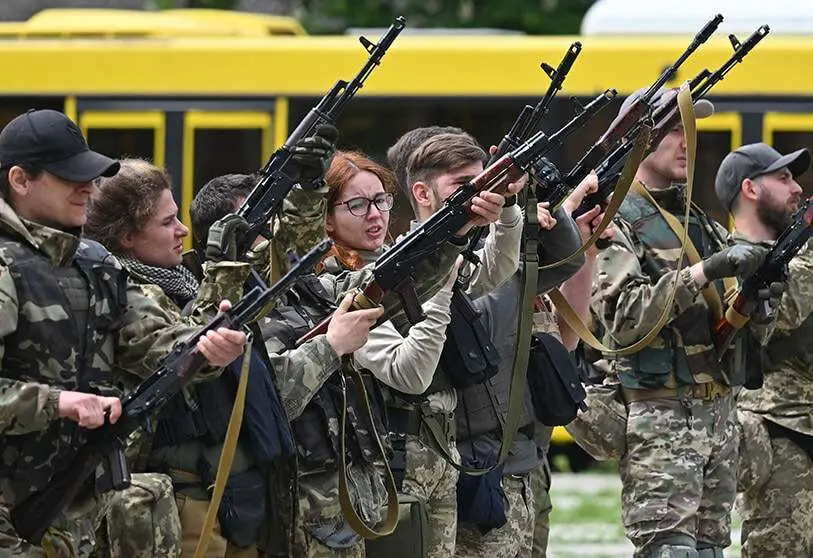EU increases military aid to Ukraine by 500 million euros

Military aid to Ukraine continues to increase. European Foreign Ministers have pledged 500 million euros in military aid to Ukraine with the aim of reinforcing the country's defence in the face of a war situation that they have already described as "attrition".
The new decision comes after the Ukrainian Foreign Ministry published a report on the latest developments in the conflict and Russian attacks. In view of the approval of the new aid package, the Ukrainian Foreign Minister, Dmytro Kuleba, expressed his "gratitude" for the new funds, which have brought the total amount of EU aid to 2.5 billion euros, although he urged the EU-27 to provide even more because it is still insufficient.

For EU High Representative Josep Borrell, sending arms aid to Ukraine is crucial and we "will provide it (...) the war will continue". On the debate over the effectiveness of the sanctions, Borrell criticised that "several European leaders have been saying that the sanctions were a mistake" after Hungarian Prime Minister Viktor Orbán claimed that with the sanctions "Europe had shot itself in the lungs".
However, he defends their implementation as Russia "indiscriminately bombs any kind of civilian infrastructure, killing innocent people (...) it is a tragedy". Borrell affirms that the measures were not a mistake, "it is what we had to do and we are going to continue doing it".

Since Russia began its invasion of Ukraine, Europe decided, for the first time in its history, to mobilise the European Peace Facility to finance arms deliveries. The Fund, which had an overall budget of 5 billion euros for the period 2021-2027, now has half of that available after having been used for aid to Ukraine.
According to Lithuanian Foreign Minister Gabrielius Landsbergis, it is the arms that Europe has been able to provide that have made it possible "to help the Ukrainians to stop the all-out attack on their territory. It is what has allowed them to regain control of Snake Island and it is what will probably allow Ukraine to restart the transport of grain from the port of Odessa". Landsbergis therefore urged the importance of "continuing arms deliveries" and said that "any country that can do so should speed up deliveries".

In Spain, the Foreign Minister, José Manuel Albares, has declared his support for unblocking the new aid of 500 million euros because it is "to support the military effort of the Ukrainian army to preserve its sovereignty, its territorial integrity, its freedom and its democracy".
Against this backdrop, Europe plans to give the green light to the seventh package of sanctions against the Kremlin. In contrast to the other measures, the new sanctions include a ban on Russian gold, a measure that would have been adopted during the G7 summit. Likewise, the blacklist of sanctioned Russian oligarchs and leaders will be extended, although no additional measures on the energy sector are envisaged beyond the current ban on Russian coal imports, which will come into force in August, and the oil embargo, scheduled for the end of this year.

Likewise, in this new package, sanctions against Russian gas would be exempted, at a time when the Nord Stream 1 gas pipeline would be closed for construction work. In this context, Borrell indicated that he knew that "Russia could use the weapon as gas against us. In fact, they have already been doing so, reducing gas supplies", but this is not going to make the European Union give in "to the Kremlin's blackmail", which is why support for Ukraine is unstoppable.
Another problem that worries European leaders is the risk of a serious global food crisis as a result of Moscow's blockade of more than 20 million tonnes of grain in Ukraine. In order to be able to export this grain, the EU has set up alternative routes that would export the grain via rail transport.
Even so, Borrell continues to declare that these measures are "insufficient", which is why it is necessary to approve an agreement, with the mediation of Turkey, to unblock the port of Odessa, as well as other Ukrainian ports, since, in the words of the high representative, "it is a matter of life and death".








